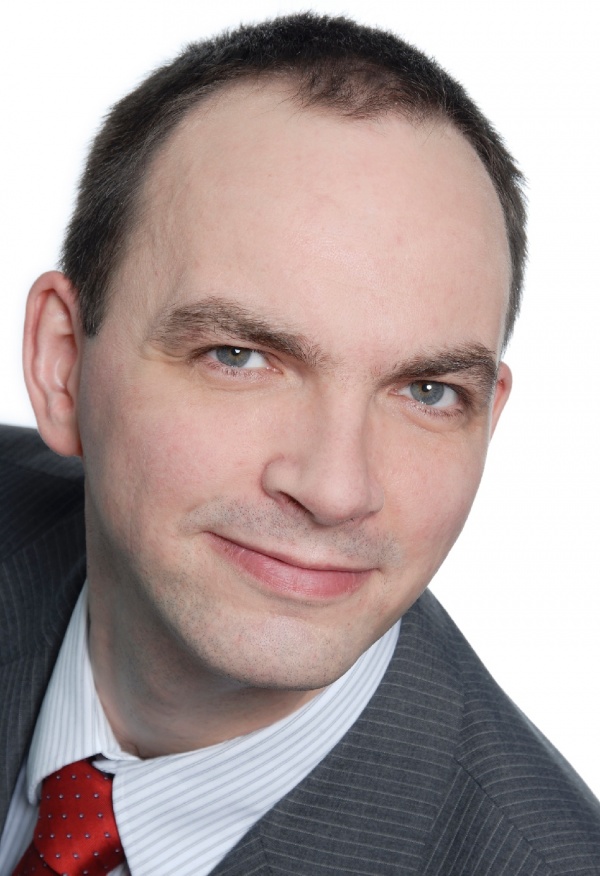Fair city sharing - what can urban planning contribute?
Our cities have grown over centuries. This also reflects the history of urban society, i.e. who was in charge, which professions were accessible to whom. A city is a multi-layered structure:...


YOUR FORUM FOR PLAY, SPORTS UND LEISURE AREAS

Playground@Landscape: Travel in 2009: “Only every second German citizen went away on holiday. Is ‘Balconia’ in?”
Dr. Ulrich Reinhardt: No, it can’t be put like that. The fact that some Germans stay at home for their holidays, whether from choice or necessity, has remained constant at more or less the same level for years. This is based on different reasons: On the one hand, the demographic change has led to a steady increase in the share of older people who are not as ready to travel as younger ones, either for health reasons or because they do not (or no longer) have a partner to travel with. In addition, and particularly in times of economic crisis, finance naturally plays a great part. Not everyone can afford a holiday and many people must calculate very carefully whether they can travel at the moment. Another factor which must be mentioned is the improvement in living environment. Many cities and towns have consistently improved and increased their offers. Now, many citizens have the possibility at last of taking a closer look at their local surroundings and getting to know the cultural, recreation, sport or sightseeing programmes available to them. From this point of view, a holiday on “Balconia” also has its advantages.
Playground@Landscape: A comeback for the world travel champion in 2010: “Holiday recreation instead of crisis frustration”?
Dr. Ulrich Reinhardt: It cannot be said that the crisis has bypassed the Germans completely. There is definitely an awareness of the crisis, however the Germans do not believe in panic mongering. A holiday is and remains the most popular way to feel good and the wish to take a holiday remains unchanged. Along with the desire to get away from daily life, a large part of the pleasure is to be able to tell friends, family and colleagues about the holiday. The ‘world travel champion’ will only do without his holiday if there is no other possibility open to him.
Playground@Landscape: Inland destinations in Germany 2009 – Who travels where?
Dr. Ulrich Reinhardt: Winner among the inland destinations this year is clearly Baden-Württemberg with its travel destinations in and around the Black Forest and Lake Constance. Baden-Württemberg was the only inland holiday destination to generate an increase last year (2008: 2.9% of all travellers, 2009: 3.7%). Other than this, much remains the same as ever: Bavaria is the most popular inland destination followed by Mecklenburg Western Pomerania, Schleswig-Holstein and Lower Saxony. It is generally young people and pensioners who go on holiday within their own country and it is of no interest to couples and young adults. Apart from this, it can be seen that Germans with a net household income of less than 1.000€ are most frequently those who go on holiday in Germany. The difference between Western and Eastern Germans is striking. While for the population as a whole, 37% take their holidays in Germany, for the Western states this figure is only 33% but for the Eastern states 49%.
Playground@Landscape: Destinations abroad 2009: Who stays at the top and why?
Dr. Ulrich Reinhardt: Spain remains the most popular destination abroad for German citizens. In second place, a long way behind, is Italy which is now followed by Turkey. In contrast, long-distance travel remains a dream at the moment. Many people would like to have a holiday outside Europe, but only a few have the time or money to do this. Decisive for the choice of holiday country is on the one hand experience already gained and recommendations from friends, but also habit: Once Spain – always Spain. The price-to-performance ratio also plays an important role. The Germans are more price sensitive than other Europeans when it comes to accommodation or restaurant prices. The sun, beach and sea also remain important factors. In future, the BAT Foundation expects immaterial factors such as e.g. service, atmosphere, hospitality, ambient and comfort to be of increasing importance.
Playground@Landscape: How long to the holidaymakers stay?
Dr. Ulrich Reinhardt: On average, the holiday duration for Germans is exactly 13 days. This continues the trend of the last 10 years with just less than two weeks. The length of the holiday does vary however, depending on the destination. In Germany a holiday trip usually lasts about 10 days, in Spain 14 and in North America even 20 days. There is also a trend towards the length of holiday increasing with higher income and pensioners take the longest holidays with 14 days on average.
Playground@Landscape: And always cheap-cheap?
Dr. Ulrich Reinhardt: No, in general the focus is not on ‘always cheaper’, but a nearly dramatic split in society can be seen. This is made clear from, among other things, a comparison of professional groups: 4/5 of state employees (80%) are ready to travel, for workers, this is only half as popular (41%). An even larger rift is shown according to income: For higher earners (net household income more than 3.500€) it is a matter of course that they go on holiday. For three quarters of them, the annual holiday is nearly obligatory (74%) and two fifths (39%) of this income group enjoyed two or more travels in 2009. The lower earners (net household income less than 1.000€) can only dream of this: Only one in five (20%) was able to go on holiday at all. A two-class society of mobile and immobile has been formed. One class are more occupied with the destination than the budget and the other must worry increasingly about budget and saving and often have a holiday in “Balconia” or the “Republic of Mygarden”.
Playground@Landscape: What are common holiday requirements and where is there potential for tourism?
Dr. Ulrich Reinhardt: All-inclusive definitely remains a form of tourism with potential for the future: Nearly two in five Germans state they would be interested in this kind of holiday in future. But classic recreation holidays also still have great potential. There is a great divide between wishes and reality for holiday cruises. Many people would like to go on a cruise but only a few have been able to realise this dream so far. From this point of view the cruise organisers should be able to look forward to great demand in future.
Playground@Landscape: “Camping and caravanning remain permanent favourites“?
Dr. Ulrich Reinhardt: Yes. Camping tourism can enjoy a renaissance. This kind of holiday is particularly popular with low-income Germans and it is also interesting for young people. The popularity of camping holidays among the younger generations from East Germany is especially striking while their counterparts in Western Germany are attracted by more expensive types of holiday such as club holidays, cruises or event holidays.
Playground@Landscape: At the end of September in Vienna, experts from 24 countries will discuss trends and perspectives in barrier-free tourism at the 2nd ENAT Congress (European Network for Accessible Tourism). Is this a trend?
Dr. Ulrich Reinhardt: Barrier-free tourism can be described as THE trend par excellence. Demographic change cannot be ignored and travel agents who do not cater for the requirements of older citizens must not be surprised when they lose money. However, it must not be forgotten that senior citizens in general cannot be regarded as only one class. A 50-year old has just as little in common with a 65-year old as the 65-year old with an 80-year old, a 10-year old with a 25-year old or a 25-year old with a 40-year old. It must be the task of a good travel organiser to be optimally equipped to satisfy the requirements of a special target group instead of trying to satisfy them all. An attempt to keep everyone happy only creates the possibility of conflict.
Interview by Thomas R. Müller (Playground@Landscape)